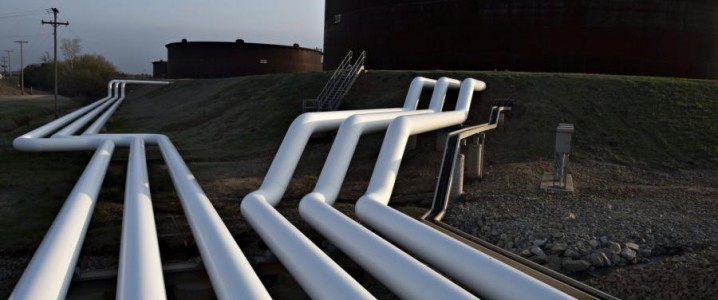Nigeria could hit 2.2 million barrels per day of oil production in 2023. This statement is attributed to the CEO of NNPC Ltd, Mele Kolo Kyari. Kyari made this statement while virtually addressing the 13th Global UAE Energy Forum on the 11th of January. According to Mr. Kyari, the country’s main target is to hit the OPEC quota of 1.8 million barrels per day.
Kyari in his statement noted that predictions of a crash in crude oil demand are unrealistic considering the economic growth in Africa and the reopening of the Chinese economy. He predicted a shortage in the global oil market citing China’s reopening plus the slow growth in crude oil supply.
Also Read: Nigeria Losing Millions of Oil Export Dollars To Maintenance Problems
“I do not see how this demand will collapse because countries are coming back, China is recovering from COVID-19 and a number of countries, particularly sub-Saharan African countries, are growing, economies are growing very, very fast against all odds,” – Mele Kyari
In anticipation of slowing crude demand and a bid to spur oil price recovery, OPEC+ agreed to reduce oil production by 2 million barrels per day from November till the end of November 2023. This move led to the slashing of Nigeria’s oil quota to 1.742 million BPD from 1.826 million BPD. Despite this quota cut, Nigeria has been unable to reach its OPEC quota as the country recorded one of its worst years for oil production in 2022.
In December 2022, the country hit its best oil production figures since March 2022 when the NUPRC recorded an oil production volume of 1.235 million BPD excluding condensates. Though far from the quota allotted to Nigeria, it was a huge step up from November 2022 when the country recorded a production volume of 1.18 million BPD. The country recorded its worst oil output in 2022 in August when oil production fell to 972,394 BPD.
Also Read: OPEC+ Unlikely To Boost Oil Production More Than Planned
Nigeria’s oil industry faces a number of challenges, from moribund refineries to a subsidy regime gulping billions of dollars, to oil theft at alarming rates, as well as its importation of refined petroleum products.
During the webinar, Mele Kyari asserted that Nigeria is set to become a net exporter of refined petroleum products. According to him, the country’s planned rehabilitation of its local refineries and the Dangote Refinery which is due to come on stream in mid-2023 will give Nigeria a refining capacity of 1.1 million BPD.
Speaking on the issue of Nigeria’s fuel supply and subsidy, Kyari noted that the NNPCL had a strictly commercial relationship with the Federal Government of Nigeria. Kyari noted, “NNPC has become a completely private company today. Yes, owned by the government, but it’s operating like every other company today, like Shell, Chevron, and any other company you can think of in our country.”
He added, “our relationship with government today in terms of supply of fuel is on a commercial basis. There’s a service-level agreement between us and the government to supply fuel and sell it at a price that the policy decision has asked us to do. It is not a problem for us as a corporate entity.”
Several factors have contributed to Nigeria’s low oil production, with security being one of the most significant. In September 2022, NNPCL released a statement that the country was losing approximately 470,000 BPD to oil thieves. Kyari noted that the Nigerian government had taken steps to improve pipeline security. “We took definite steps to increase production and this is paying off. Around July, our net crude oil excluding condensate came down to around 1 million BPD. That has been restored,” he stated.
Also Read: Nigeria and Russia Not Complying with OPEC Oil Production Cuts
During the webinar, the Equatorial Guinea oil minister, Gabriel Mbaga Obiang Lima also spoke. He noted that OPEC+ was monitoring the Russia-Ukraine war and the Chinese economy.
“We are all looking at this new opening of China,” Obiang said. “Traveling is going to be a key thing. If the Chinese New Year concludes and there is no major concern about infections, that’s going to be a sign that things are going in a positive way.” He added.
According to the S&P Global Commodity Insights, despite the cut in OPEC+ production volume, the price of Brent crude has fallen from about $100/barrel in early November to about $80/barrel in recent times.

